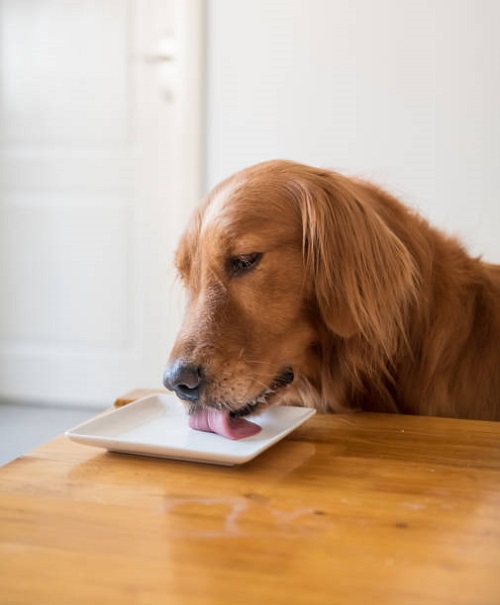Has your Dog Licked Castor Oil? Worry not! Here’s what you can do to ensure the well-being of your furry companion!
Have you ever wondered what would happen if your dog licked castor oil? If yes, this article will give you a quick breakdown of such a situation!
Have a glance at Castor Oil for Sinus Headaches here
What Happens If A Dog Licks Castor Oil?

Castor oil comes from the seeds of the Ricinus communis plant, which humans have used for various purposes for centuries. Whether you need a laxative or a moisturizer, castor oil can do the job. But don’t let its benefits for humans fool you; it can be pretty harmful for dogs.
Dogs that ingest castor oil may suffer from severe diarrhea, vomiting, and abdominal pain. These symptoms can quickly lead to dehydration, which can be life-threatening. They may also need urgent medical attention.
But that’s not all! Castor beans, the seeds that produce the oil, have a toxic protein called ricin. Even though most of the ricin gets removed during the extraction process, some traces may still remain in the oil. This could cause serious poisoning in dogs. That’s why you should always talk to a veterinarian before using castor oil for your furry friend.
My Dog Licked Castor Oil—What to Do?
1. Gastrointestinal Distress
Castor oil can wreak havoc on your dog’s digestive system. It works as a powerful laxative, which can cause your dog to have severe diarrhea, vomiting, and stomach pain.
Not only that, but digestive problems can also make your dog’s other health issues worse. For example, if your dog has irritable bowel syndrome or any other gastrointestinal condition, castor oil can aggravate it.
What to Do:
If you observe these symptoms, it’s crucial to consult a veterinarian as quickly as possible for appropriate treatment, which may include fluid therapy and medication to control the symptoms.
2. Dehydration
Castor oil can make your dog lose a lot of water from their body. This mostly happens due to diarrhea and vomiting after ingesting the oil. This can be very dangerous for puppies, adult dogs, or dogs with other health problems.
Some signs that your dog is dehydrated are dry gums, sunken eyes, and low energy. If your dog is very dehydrated, their organs can stop working and they can die. This is a very serious situation and you should take your dog to the vet right away.
What to Do:
If you suspect dehydration, you should seek immediate veterinary care. Treatment usually involves rehydration through intravenous fluids and electrolyte balancing.
3. Toxic Compounds
Castor beans are the source of castor oil, a versatile product with many uses. But castor beans also harbor a deadly secret, and that is ricin. It is one of the most poisonous proteins in nature. It can kill dogs and other animals in tiny doses. Even though most of it is removed during the extraction process, some of it may still linger in the oil.
If your dog eats castor beans or castor oil, watch out for these signs of ricin poisoning, such as trouble breathing, shaking, and organ failure. Ricin poisoning is a medical emergency. Seek veterinary help right away if you suspect your dog has been exposed to ricin.
What to Do:
If you suspect ricin exposure, seek emergency veterinary care right away. Treatment usually involves supportive care like fluids, medications to control symptoms, and, in extreme cases, antidotes for poisoning.
Have a look at the Effectiveness of Castor Oil for Tinnitus here
Things To Keep In Mind
If you suspect that your dog has ingested castor oil or is experiencing symptoms of gastrointestinal distress, here are the steps to take:
Note: Keep castor oil away from your pregnant pet, as it could induce contractions.
Precautions To Consider
To prevent your dog from getting into castor oil or other potentially harmful substances:
- Store castor oil and other household chemicals in a secure cabinet or out of your dog’s reach.
- Keep an eye on your dog when they are in areas where castor oil or other hazards might be accessible.
- Ensure your dog is trained to respond to commands like “leave it” or “drop it” to prevent them from picking up or ingesting harmful items.
Get the Honest Queen of Thrones Castor Oil Review here



